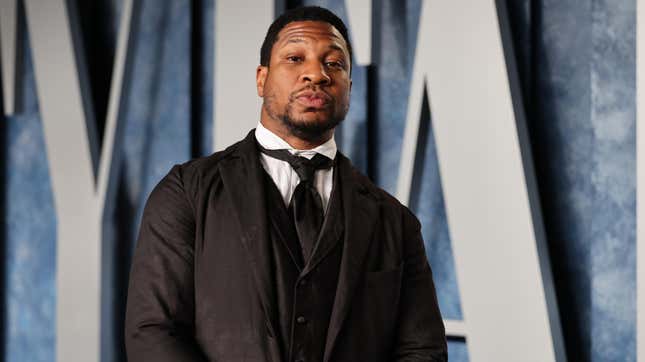Texts Shared by Jonathan Majors’ Lawyer Actually Raise More Questions Than Answers
In the texts, Majors' alleged victim references the injuries she sustained and seems concerned with protecting Majors from legal trouble.
JusticePolitics

Over the weekend, Jonathan Majors was arrested for domestic assault after allegedly attacking a woman who police identified as his girlfriend. He was ultimately released without bail, and his lawyer said the woman issued statements recanting the allegations, though some expressed concern that the statements had been coerced. On Thursday, Priya Chaudhury, a lawyer for Majors, shared screenshots of texts supposedly between the actor and his alleged partner to TMZ. The intent of sharing the texts appears to be to exonerate Majors, but ultimately, they’ve raised more questions than answers.
In the texts, the woman primarily seems concerned with protecting Majors from further legal trouble. “They assured me you won’t be charged. They said you had to be arrested as protocol when they saw the injuries on me and they know we had a fight,” the unnamed woman (allegedly) wrote. “I’m so angry they did. And I’m sorry you’re in this position. Will make sure nothing happens about this.” In the same text, she said she told police, “it was my fault for trying to grab your phone,” and added that she just got out of the hospital.
The physical injuries she references are what ultimately led to Majors’ arrest. According to the New York Police Department, the woman “sustained minor injuries to her head and neck” and “was removed to an area hospital in stable condition.”
Hours later, she told Majors that police just called to follow up with her, and they “reiterated this was not an attack and they do not have my blessing on any charges being placed.”
-

-

-

-

-

-

-

-

-

-

-

-

-

-

-

-

-

-

-

-

-

-

-

-

-

-

-

-

-

-

-

-

-

-

-

-

-

-

-

-








































